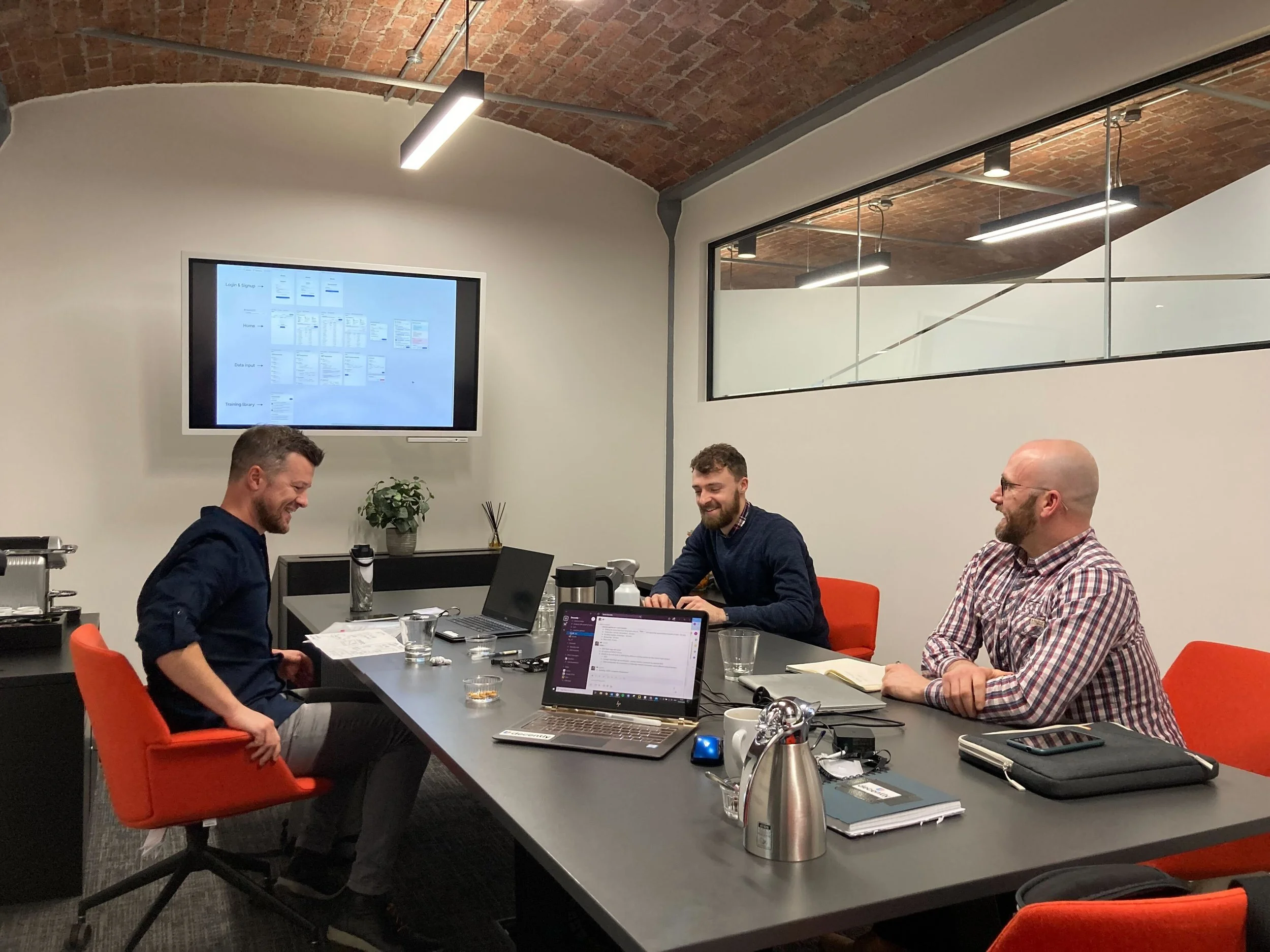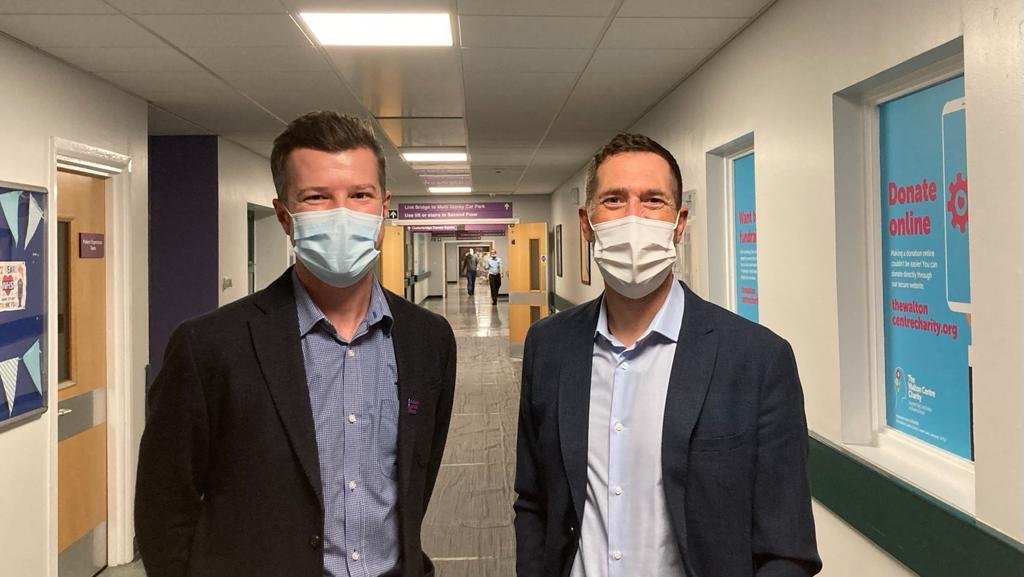STFC funding supports new healthcare app project
We were recently successful in securing funding to develop a prototype app for healthcare professionals to carry out clinically validated, digital risk assessments of patients within hospital settings.
The Cross-Cluster Proof of Concept grant, funded by UKRI-STFC, provides targeted innovation funding to support and accelerate innovative cross-disciplinary collaborations across the health-tech cluster.
Over the course of the 3 month project, it has enabled the team here at Decently to collaborate with staff from the Walton Centre NHS FT, Mersey Care NHS FT, ORCHA, the Innovation Agency, Liverpool John Moores University and the Hartree Centre.
Our project partners
Discovery
Collaborating with the clinical team at the Walton Centre NHS FT
As we began to work with our NHS partners, in particular the Walton Centre NHS FT, it became clear that there was a particular need for a more joined-up, digital approach to how neuro rehab wards deal with the impact of challenging behaviour (often violent and aggressive incidents) from patients recovering from some form of acquired brain injury and the impact on themselves, other patients and particularly, staff.
Dr. Andrew Rose was a pivotal member of the project team and introduced us to key members of staff at Walton NHS FT as well as similar contacts in Mersey Care NHS FT.
Exploring the clinical challenges faced by staff
Midway through the project we were introduced to key stakeholders from the Black Country Healthcare NHS FT who also fed into our discovery and design.
All 3 Trusts have seen a big impact on staff absence from both physical and mental trauma resulting from challenging patient behaviour and this directly can have a negative impact on staff retention.
Exploring the reasons why, and how a digital solution could help, became the focus of our Discovery sessions which we ran face-to-face and remote, interviewing a variety of members of staff ranging from; Psychology / Psychiatry, Risk and Safety Team, Nursing / HCA staff, Physio, OT and Radiology.
“We have the know-how but we are currently unable to get the risk intervention plan in place appropriately, timely, effectively. This project is about creating a digital solution to get the right info to the right people at the right time to make a difference”
Design
Design sprint with our Product team at Decently HQ
As a result of the Discovery phase, we were able to start working on a series of internal design sprints to design and mock-up a series of wireframes, data flows and prototype screens - all of which ultimately was used to create a clickable prototype, Riskify.
Next steps
We are continuing to work with a number of key partners from within the project to take Riskify through a further phase of user testing and feedback, to ensure that we are designing the platform in the right way.
At the same time we are assessing the technical feasibility, costs and requirements to begin work on developing the platform into a fully DTAC compliant SaaS solution over the coming months. Discussions with various parties are currently underway regarding further funding.
We are also exploring the potential to use AI/Machine Learning to create deeper understanding of the different kinds of behavioural triggers (based on ongoing professional observations) which could one day lead to the possibility of using predictive analytics to prevent incidents before they occur.
Our aim is to be in a position to launch a first useable version of Riskify later this year, when we will be supported by the Health Matters team from Liverpool John Moores University in carrying out a real-world validation of our innovation. This will be critical in assessing the impact of the app for clinicians and patients, and whether the platform could be used more broadly across other settings or risk areas.
Onsite with our NHS partners
“We know from experience that building better health tech takes time. It also requires a truly collaborative approach, clinical input and real world validation. The STFC funding has supported us in putting a lot of those foundations in place as we move towards launching our first product later this year”
We would like to give particular thanks to the following people who have supported the project to date: Lee Glassbrook, Jessica Brush, Dr Andrew Rose, Dr Stephen Mullin, Mike Duffy, Katie Whittle, Steve Bradbury, Adrian Smith, Andrew Cairns, Richard Harding, Harvir Singh.







